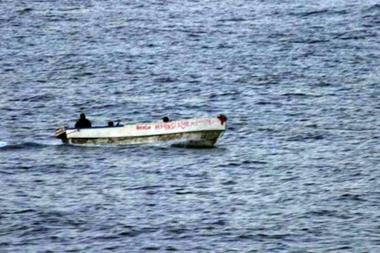Fuel supply networks look increasingly vulnerable and the problems with supply and demand are not going away. What is the international community’s response?
Energy security is a major problem for businesses. Difficulties with supply and wildly oscillating prices make it very difficult for them to plan ahead. Unfortunately, for a number of reasons, these problems don’t look like abating anytime soon.
Oil prices in 2008 were nearly double the 2003 prices in real terms. They reached a maximum level at $147 per barrel in July but a barrel of the black stuff now costs less than half that. It is a temporary respite. The drop in demand won’t last forever.
China currently consumes two barrels of oil per capita annually, compared with 25 in the US. Millions of Chinese are lifting themselves out of poverty and increasing demand for energy. This could have a massive impact on the market.
Security of supply is another issue. The West produces very little of its own energy needs and relies heavily on imports. It is understood that every year the major oil consumers pass $2.2 trillion to the oil producing states. That is shifting economic and political power into the hands of the producers. Many of these places defy Western notions of democracy and increasingly seek more involvement in international affairs. Russia has recently threatened to cut off supplies to several ex-Soviet satellite states.
Further, the main energy reserves are often found in areas of political insecurity or in isolated and hostile environments. Extracting fossil fuels safely tests the limits of human ingenuity. Extreme weather can often hinder these efforts. This year Gustav shut down at least 25 % of US oil production and closed down the nation's main petroleum import facilities.
“The West produces very little of its own energy needs and relies heavily on imports.
Tankers criss-cross the world’s oceans in order to move the fuel from its source to where it is needed. On land, long pipelines sometimes pass through unstable states. Supply networks are often the subject of attack. Al Qaida has called on its followers ‘to target the sources of oil which do not serve the Islamic nation.’ And the Gulf of Aden, off the coast of Somalia, has recently seen a surge in piracy activity. According to reports, sixty ships have been attacked by Somali pirates this year and over $100m has been paid in ransom.
Fortunately there is some hope for the future. Nato secretary-general Jaap de Hoop Scheffer has unveiled new plans to redirect significant naval resources towards tackling the piracy epidemic off the coast of Somalia. Nato is cooperating with the European Union to expand the naval presence in the region, Scheffer told an audience of energy and insurance officials at a Lloyd’s function in London recently.
‘Frankly I do see complications for Nato in escorting individual private ships and tankers. Who, for instance, would pay for the price of such naval protection? But given the urgency of preventing growing lawlessness on the high seas there is clearly a role for Nato to play,’ said Scheffer.
He said a Nato standing naval group was heading to the Gulf and will be ready to intervene wherever necessary. The organisation’s maritime security efforts have indirectly helped to keep down insurance premiums for commercial shipping.
Also addressing the function, Lloyd’s chairman Lord Levene said: ‘Energy security is now an issue for every global board with a supply chain.’ He called for more international cooperation and a closer working relationship between the EU and Nato to combat the problems.




















No comments yet